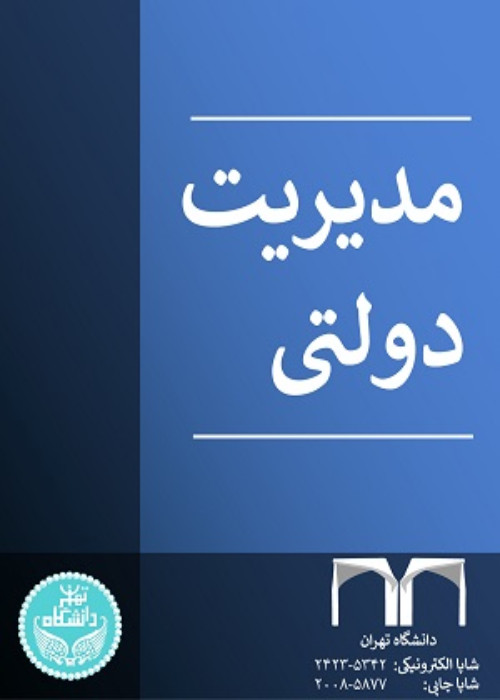Designing a Model of Public Behavior Change Tools in Behavioral Public Policy Based on Thoughts of Iranian Philosopher Martyr Ayatollah Morteza Motahari
Changing people's behavior over time has been one of the main concerns of policymakers. In this regard, governments have used rational and behavioral approaches. In the rational approach and based on complete rationality, governments use tools such as education, law, taxation, encouragement and punishment, etc; however, in the last two decades and after the formation of knowledge of behavioral economics, governments have used tools such as arousing emotions, using social norms, strengthening motivation, creating commitment, contextualization, etc. in different contexts. The behavioral approach, which relies on nudge and choice architecture to change behavior, has been able to attract the attention of many governments due to its high effectiveness and low costs. The purpose of the current research is to provide the mechanisms of changing public behavior in Islam and to find out about its perspective on changing public behavior based on the opinions of Martyr Motahari.
The literature reviewed in the present study included all the works of Shahid Motahhari, including books, notes, and audio files. This is library and documentary research, which applies the thematic analysis method, using the MaxQDA software.
Data analysis led to the extraction of 128 codes categorized into six comprehensive themes, 17 organizing themes, and 42 basic themes. Based on the findings of the research, the mechanisms of behavior change include (1) Individual factors i.e. logical persuasion, facilitating and strengthening rationality and education and awareness (the cognitive component), managing emotions, using incentives (tendency component), and enabling and creating habits (action component); (2) social factors i.e: using reference properties and groups, modeling, social norms, the collective performance of the action, and the effect of companionship; (3) institutional structural factors i.e. authority tools and rule-making; and (4) environmental factors i.e. symbolization and barrier removal. These findings show that Islam has a comprehensive view of behavior change and has presented various mechanisms in all human dimensions, including cognition, tendency, and action, and also in all individual, social, environmental, and structural levels. This view is due to Islam's view of human development as a balanced elevation of all human dimensions in a complete way. Therefore, the characteristic of the "holistic view" is one of the differences between the Islamic view and the western view regarding behavior change.
In order to change people's behavior, the Islamic government must first go through the process of awareness and persuasion and raise the level of people's insight regarding the necessity and performance of a behavior. Then he should design the external conditions in such a way that people can easily perform the desired behavior. In this regard, behavioral insights and nudge tools can help Islamic government policymakers in two areas: (1) effective presentation of government policies: behavioral insights lead to a policy that is easier and more understandable for people to look more attractive and acceptable; (2) Negative and positive foundation for performing behavior i.e. nudge tools and behavioral insights cause the texture and structure and external environment to be designed in such a way that the probability of occurrence of the desired behavior of policymakers increases.
- حق عضویت دریافتی صرف حمایت از نشریات عضو و نگهداری، تکمیل و توسعه مگیران میشود.
- پرداخت حق اشتراک و دانلود مقالات اجازه بازنشر آن در سایر رسانههای چاپی و دیجیتال را به کاربر نمیدهد.



